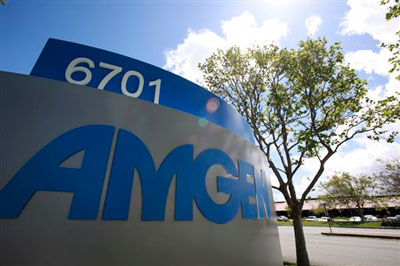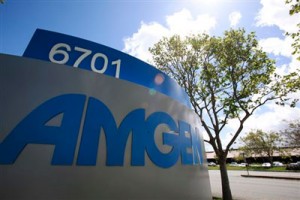Amgen announces positive blinatumomab Phase 2 study results in relapsed/refractory Ph+ B-Cell precursor ALL
Posted: 20 July 2015 |
Amgen has announced the top-line results of a Phase 2 trial evaluating blinatumomab in adults with relapsed or refractory Ph+ B-cell precursor ALL…


Amgen has announced the top-line results of a Phase 2 open-label, single-arm, multicentre trial evaluating the efficacy and safety of Blincyto® (blinatumomab) in adults with relapsed or refractory Philadelphia chromosome-positive (Ph+) B-cell precursor acute lymphoblastic leukaemia (ALL).


Blinatumomab is the first bispecific CD19-directed CD3 T cell engager (BiTE®) antibody construct product, and the first single-agent immunotherapy to be approved by the US Food and Drug Administration (FDA) for the treatment of patients with Philadelphia chromosome-negative (Ph-) relapsed or refractory B-cell precursor ALL, a rare and rapidly progressing cancer of the blood and bone marrow.
The investigational study showed blinatumomab monotherapy induced a complete remission or complete remission with partial haematological recovery within two cycles of treatment in a clinically meaningful number of patients. Overall safety results from this study were consistent with the known blinatumomab safety profile.
Results support blinatumomab as a potential treatment option for patients with relapsed or refractory Ph+ B-cell precursor ALL
“These top-line results are encouraging and support blinatumomab as a potential treatment option for patients with relapsed or refractory Philadelphia chromosome-positive B-cell precursor ALL,” said Sean E. Harper, M.D., executive vice president of Research and Development at Amgen. “We are hopeful that our comprehensive ALL development programme for blinatumomab, the first clinical and regulatory validation of the BiTE® platform, will continue to demonstrate clinical effectiveness for patients with this serious disease.”
The study enrolled adult subjects with relapsed or refractory Ph+ B-cell precursor ALL. The study consisted of a screening period, an induction treatment period (two cycles of blinatumomab), a consolidation treatment period (up to three additional cycles of blinatumomab for applicable subjects), and a safety follow-up visit 30 days after treatment. Following the safety follow-up visit, subjects were followed for response duration and survival every 3 months for 18 months or death, whichever occurred first.




